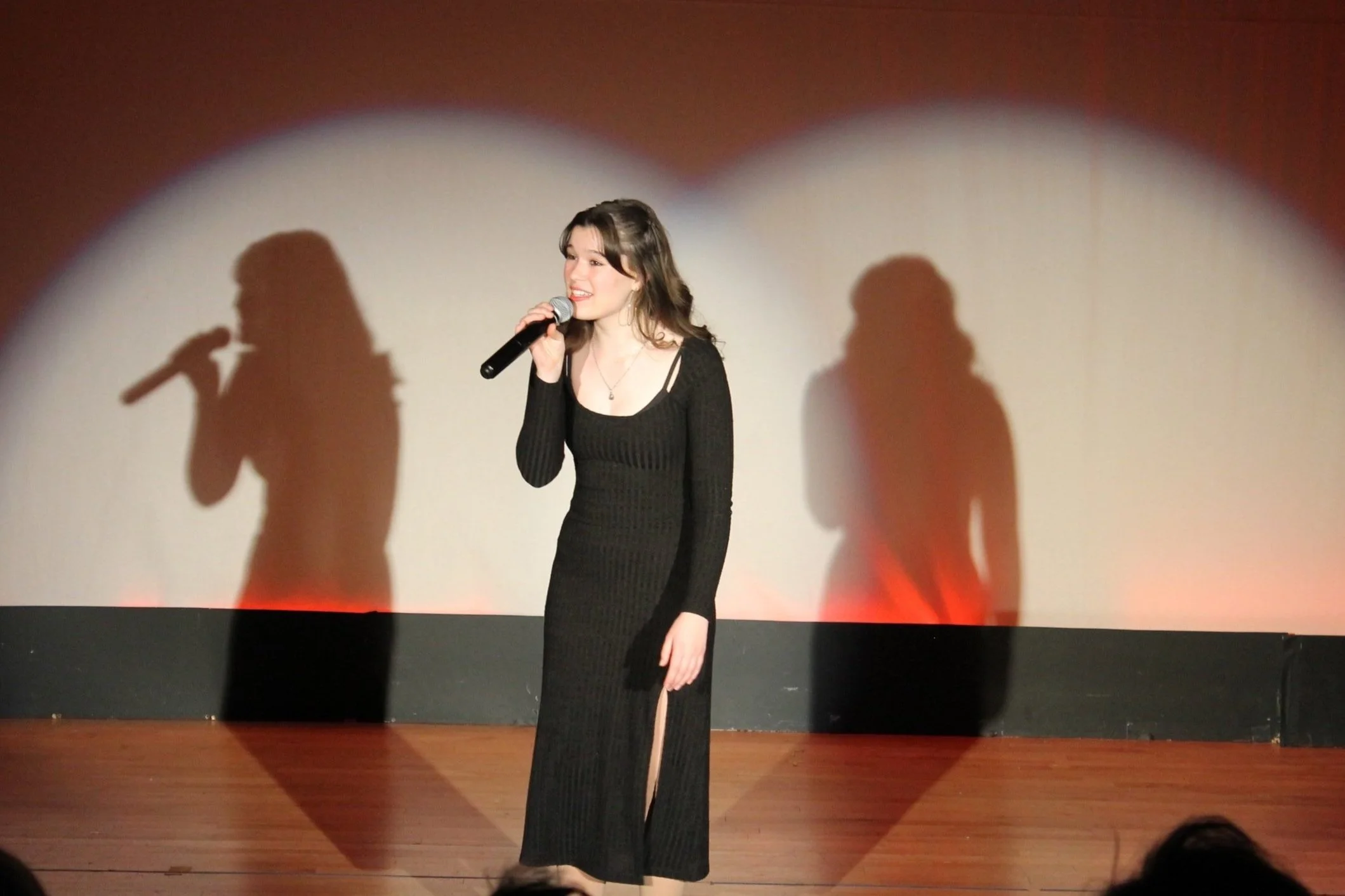Lundstrum Students Land the Right Notes
This November, three Lundstrum voice students — Sophie Dannersmith, Henrik Nordeen and Brianna-Marie Mraz — competed at one of the region’s prestigious student competitions, the Minnesota - National Association of Teachers of Singing (MN-NATS) chapter auditions. Founded in 1944, NATS promotes excellence in singing through teaching, performance and research, and has hosted a rigorous audition process for Twin Cities vocal students. 2022 is the first time that Lundstrum students have participated in the MN-NATS auditions, and we are so proud that students performed so well, with Brianna-Marie taking first place and Sophie Dannersmith receiving second place in their age bracket.
These students participate in Lundstrum’s voice program under the direction of Susan Casserly-Kosel. Sophie has been taking private lessons since July of 2021, Brianna-Marie Mraz for two years, and Henrik, who competed in two different categories, has been taking private lessons for five years. In addition to private lessons, all three students are members of Lundstrum’s Broadway Arts Conservatory, Lundstrum’s signature training program for triple-threat students developing singing, dancing and acting skills.
To compete at the NATS audition, students must prepare selections from three different songs, all of which are performed within eight minutes. Comparing the experience to Lundstrum’s more typical performances, Sue explains, “One thing that’s different is that students have much more music to prepare and must sing for an extended time. The level of preparation it takes to polish that amount of music, and sustain a performance, that’s what’s different.” Brianna-Marie said that led to some tough choices about which songs to choose. “We had to pick a wide variety of songs, so it didn’t get too repetitive. I had two songs that I love a lot, but I had to pick one or the other because they were so similar,” she said. Brianna-Marie performed “Almost There,” “Summertime” and “Evil Like Me” in the musical theater category.
Sophie participated in Lundstrum group lessons with Susan for several years before adding private lessons, and she spoke of the unique process of choosing music, “that would show off your whole entire voice.” She performed “Mira,” “Goodnight My Someone” and “I Know Things Now” also in the musical theater category.
Brianna-Marie Mraz (left) and Sophie Dannersmith (right) at the NATS auditions in November 2022, pictured with accompanist Lawrence Henry.
“I can use singing to express myself in any way that I choose, any emotion, any style.”
-Brianna-Marie
Between the intense preparation and formal recital setting, competition singing can feel like a very different experience for students. “Competing is very different from “performing to perform,” said Brianna-Marie in describing her experience. “There are a lot of things you would do in a performance that you wouldn’t do in a competition. Usually when you’re performing you want to be super expressive and move around as much as you feel the will to, but in the competition a lot more of the judging is vocally-based.” Henrik agreed, “I think it’s different because when you’re just performing for the sake of performing, you have all these options, but in competition you have to stay in a certain space.” Henrik competed in the musical theater category with “On the Street Where you Live,” “Giants in the Sky” and “Comedy Tonight.” He also prepared and performed three additional pieces in the classical category. Sophie described the experience as more formal, “I’ve been used to having audience, and the audience is completely rooting for you. If you mess up it’s okay, but [at the NATS audition] no one was in the room except the people you’re competing against, their parents, and the three judges, and the whole time the judges are writing, so you can’t interact with the audience like you normally would.”
Henrik Nordeen performs onstage with his accompanist Lawrence Henry at the NATS competition.
Sue Kosel notes she sees this added pressure as the one of the benefits she sees in the NATS audition process. “I think it’s fun to get a measurement. One of the greatest benefits is getting to hear the other singers. It’s not just about what our students do; they get to a be a part of a wider circle of singers.” The auditions expand the community of people they’ve performed before and enables critical feedback to students. Their accompanist, Lawrence Henry, added, “They see how they respond to pressure, and they can examine how they did.”
At the end of the day, students are happy for the opportunity to do what they love best. “I can use singing to express myself in any way that I choose, any emotion, any style,” Brianna-Marie explained, “Singing makes me feel great. I feel really happy when I do it.” Henrik agreed, “It’s just the feeling for me. I just loved singing ever since I was six years old.” Sophie added, “In musical theater, the reason you’re singing is because the emotion has become too strong to just say it, and I think it’s really fun to convey such strong emotion through song.”
Sue was proud of all three of her students. “They performed wonderfully. They absolutely met and exceeded our expectations. They represented Lundstrum very, very well,” she said, “I felt like they really rose to the occasion, and they were supportive of each other and listened to each other.” And this is just the beginning for them, Sue continued, “The experience of knowing they’ll be measured, preparing, and then performing and having that successful performance– It’s going to help them prepare for future auditions.”
Brianna-Marie performs “Almost There” at the Lundstrum Fall Showcase.
Henrik performs “On the Street Where You Live” at the Lundstrum Fall Showcase.
Sophie performs “I Know Things Now” at the Lundstrum Fall Showcase.
Want to focus on your singing?






